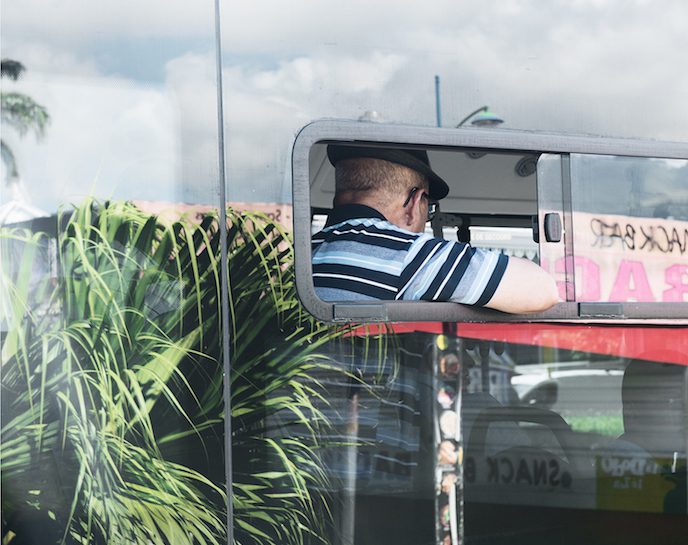Goodman Gallery, Johannesburg, South Africa
18 Apr 2019 - 11 May 2019

Jabulani Dhiamini, "Le ka thoko ho tsela", (Detail), 2018. Edition of 5. Courtesy of Goodman Gallery
For his fourth exhibition with Goodman Gallery, Jabulani Dhlamini presents a recent series of photographs taken across the country and continent. Integrating ethnographic and autobiographic approaches to image making, Dhlamini unpacks our subjective relationship to space. Marking a departure for Dhlamini, this work sits between figuration and abstraction which results in images that are both decisive and critical, resisting easy interpretation or categorisation.
In late 2016 Dhlamini travelled to his birthplace in the province of Free State to visit his great grandfather’s grave. The site was on a farm which had been home to several generations of Dhlamini’s family, who ‘earned the right’ to live there during apartheid as long as a male member of the family worked the land. The family later lost their access to the land when Dhlamini’s uncle, who had lived on the plot for over 50 years, passed away leaving no one to take over his ‘duty’.
By re-visiting this place Dhlamini hoped to access memories he had otherwise been denied. Dhlamini returned to Warden several times over the next year in order to capture images of the land his family had once occupied as well as the community who still called the town their home.
In another work in this series, Dhlamini uses a medium-format camera to document a common type of semi-detached house found in Soweto. Built as a means to accommodate the influx of new residents forced into Soweto during apartheid due to the Group Areas Act, the houses were typically split down the middle and shared between two families. These images appear in the form of a photographic grid depicting an architectural typology. Shown in this manner the work illustrates the disjuncture between the uniformity of the houses and individual characteristics formed through years of occupation. For Dhlamini, these images represent the intersection between personal and social memory, functioning in a similar manner to how Mandela’s house in Soweto was turned into a museum. “These ordinary people’s homes are a testament to that same history and can be seen as archives of their lived experience,” says Dhlamini.
In mid-2017, Dhlamini visited Réunion Islands as part of a residency. On the trip, Dhlamini encountered a number of headless statues. Interested to learn more about the history of these defaced monuments, Dhlamini sought more information but soon found that most preferred to give him the tourist-friendly version of events, an experience reflected in his photographs from the visit. Later that year, Dhlamini visited the now empty plinth of Cecil John Rhodes’ statue at the University of Cape Town. While there he encountered tourists standing beside locals, all taking photos of the absent monument. “What happens when tensions are hidden in plain sight,” asks Dhlamini. This question is a driving force behind this work, which serves as a prompt for a broader conversation around what we do with the history that informs our identity, even if it feels alien to us.
Jabulani Dhlamini was born in Warden, Free State in 1983; he lives and works in Johannesburg. Dhlamini majored in documentary photography at the Market Photo Workshop in Johannesburg and he was the recipient of the Edward Ruiz Mentorship 2011/12. Dhlamini’s work focuses on his upbringing, as well as the way he views contemporary South Africa. His Umama series was exhibited as part of his Edward Ruiz award at the Market Photo Workshop in 2012, and at Goodman Gallery Cape Town in 2013 – his first solo exhibition with the gallery, following an exhibition of his Recaptured series in 2016. In 2018 Dhlamini’s work was featured on the Five Photographers, A Tribute to David Goldblatt group exhibition at the Gerard Sekoto Gallery at the French Institute. In his most recent exhibition at Goodman Gallery, iXesha!, Dhlamini explored how memory is created and archived within a community where the memory has been localised.